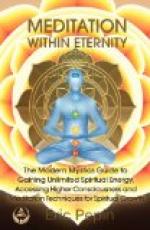The transfiguration of Jesus was undoubtedly the effect of his being in a supra-conscious state, a state of exaltation, in which many mystics enter at more or less frequent intervals, according to their mode of life, and their objective environment.
“And he was transfigured before them; and his garments became exceedingly white,” we are told in the gospels, and there are many persons in the world to-day possessing the power of the inner or clairvoyant vision (not identical with cosmic consciousness), who have witnessed similar phenomena.
In the “Sermon on the Mount,” we find that Jesus spoke with such certainty and such authority, as one who had experienced the very essence of the cosmic conscious state, and was already freed from the illusions of the senses. His words, like those of all who have sought to give directions and instructions for the attainment of freedom from externality, are capable of interpretation in various ways, according to the degree of consciousness of the age in which the interpretations have been made.
For example, we find these words of Jesus given different meanings, and in fact, there have been many and diverse discussions and conclusions as to exactly what the Master did mean by them:
“Blessed are the poor in spirit, for theirs is the kingdom of heaven.”
Let us examine the phrase, and see if it accords with our ideas of cosmic consciousness. To be “poor in spirit,” is not consistent with our understanding of the requirements for the expansion of the soul.
Those who take this phrase literally, and who are opposed to religious concepts, as a factor in human betterment, are fond of using this phrase as an evidence of the fanaticism of Jesus, and his concurrence in the worldly habit of exploiting the poor, and “riding the backs of the wage slaves,” as our Socialist brothers put it.
Now let us, for a moment, consider the phrase as a person who possessed cosmic consciousness would have said it.
One possessing the cosmic sense, viewing the external more as a trap of the senses, than as realities, would readily perceive that to amass wealth (external possessions), the mind must be in harmony with the methods and the ideals of the world, rather than that it should be concentrated upon the “things of the spirit.”
This idea is expressed in the phrase, “no man can serve two masters,” and while we are not prepared to say that the possession of worldly goods is absolutely impossible to the attainment of cosmic consciousness—observation, reflection, and intuition will unite in the conclusion that they are more or less improbable.
If then, we will interpret these sayings of Jesus in the light of a broader outlook than was possible to the understanding of his chroniclers, we will find that what he doubtless said was:
“Blessed in spirit are the poor, for theirs shall be the kingdom of heaven.”




